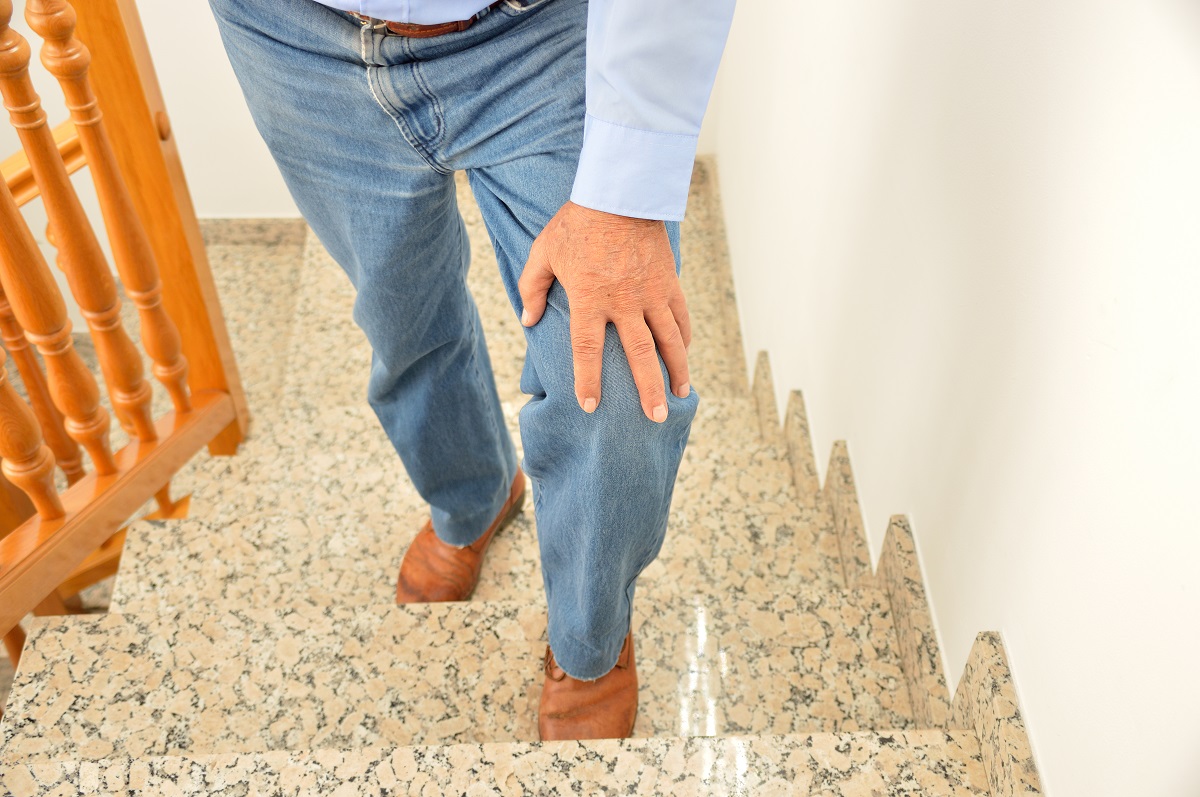

Articles
Knees Crack When Walking Up Stairs
Modified: December 7, 2023
Discover helpful articles on why knees crack when walking up stairs and find solutions to reduce discomfort and improve mobility.
(Many of the links in this article redirect to a specific reviewed product. Your purchase of these products through affiliate links helps to generate commission for Storables.com, at no extra cost. Learn more)
Introduction
Walking up stairs is a common daily activity that most of us do without giving it much thought. However, if you’ve ever experienced your knees cracking when climbing stairs, you may have wondered what could be causing this phenomenon. While it can be alarming and even sometimes uncomfortable, knee cracking when walking up stairs is a relatively common occurrence and can have various causes.
The cracking sound, known medically as “crepitus,” can be characterized by a popping, clicking, or grinding noise in the knees. It may be accompanied by a sensation of stiffness or even pain. While it can happen at any age, it is more prevalent in older adults due to the natural aging process and the wear and tear our joints go through over time.
Understanding the causes of cracking knees can help alleviate concerns and provide insights into potential management strategies. In this article, we will explore the various factors that contribute to knee cracking and ways to manage it when walking up stairs. Additionally, we will touch on the importance of joint health and when it may be necessary to seek medical attention.
Key Takeaways:
- Cracking knees when walking up stairs is often harmless and can be managed through lifestyle modifications, exercises, and proper joint care. Understanding the causes and seeking medical attention when necessary are crucial for overall knee health.
- Maintaining a healthy weight, practicing proper body mechanics, and incorporating regular exercise and stretching can support knee health and reduce discomfort. Consulting with a healthcare professional for personalized guidance is essential for addressing persistent symptoms.
Read more: Dizzy When Walking Up Stairs
Causes of Cracking Knees
There are multiple factors that can contribute to knees cracking when walking up stairs. One common cause is the presence of air or gas bubbles in the joint fluid. When you bend or straighten your knees, these bubbles can burst, resulting in the cracking sound. This is similar to the sound you hear when popping your knuckles. While this is generally harmless, it can be more pronounced if there is underlying joint damage or inflammation.
Another potential cause of knee cracking is the uneven distribution of pressure on the joint surfaces. This can occur when the knee joint is misaligned or if there are imbalances in the surrounding muscles. As a result, the bones may rub against each other, leading to the cracking sensation.
Additionally, tight or imbalanced muscles can also contribute to knee cracking. When the muscles surrounding the knee joint are not properly conditioned or stretched, they can exert excessive pressure on the joint, causing it to crack. This is especially common in individuals who have weak quadriceps or tight hamstrings.
In some cases, knee cracking can be a result of degenerative conditions, such as osteoarthritis. Over time, the cartilage in the knee joint can wear down, causing the bones to rub together. This friction can generate cracking sounds and potentially lead to pain and stiffness.
It is worth mentioning that while knee cracking is often harmless, it can also be a sign of an underlying injury or condition. Injuries such as ligament tears or meniscus damage can cause the knee joint to crack. If you experience persistent pain, swelling, or instability along with the cracking sounds, it is crucial to seek a medical evaluation to properly diagnose and treat the issue.
Common Risk Factors for Knees Cracking
While knee cracking can occur in anyone, certain factors can increase the likelihood of experiencing this phenomenon. Understanding these risk factors can help identify potential causes and guide preventative measures.
One of the primary risk factors for knees cracking is age. As we get older, our joints naturally undergo changes, including the thinning of cartilage and the loss of joint fluid. These age-related changes can contribute to increased friction and the development of osteoarthritis, making knee cracking more common.
Obesity is another significant risk factor for knee cracking. Excess weight places added stress on the knees, leading to accelerated joint degeneration. The increased pressure can also disrupt the proper alignment of the knees, potentially causing them to crack when in motion.
Muscle imbalances and weakness can also contribute to knee cracking. When the muscles surrounding the knee joint are weak or not properly conditioned, they may not provide adequate support, causing the knees to experience abnormal movements. Additionally, tight or inflexible muscles can disrupt the natural alignment of the joints, leading to cracking sounds.
Engaging in high-impact activities or repetitive motions without proper rest and recovery can also increase the risk of knee cracking. Activities such as running, jumping, and squatting can place strain on the knees, leading to joint irritation and potential cracking. It is essential to balance these activities with strength training, stretching, and rest to support overall joint health.
Lastly, a history of previous knee injuries or conditions can contribute to knee cracking. If the knee has experienced trauma in the past, such as a ligament tear or meniscus injury, it can lead to structural changes that may cause cracking sounds during movement.
While these risk factors can increase the likelihood of knee cracking, it is important to note that each individual is unique, and not everyone will experience this symptom. Addressing these risk factors through lifestyle modifications, exercise, and proper joint care can be beneficial in managing knee health and reducing the occurrence of cracking knees during activities like walking up stairs.
Understanding Joint Health
To fully grasp the impact of cracking knees when walking up stairs, it is essential to understand the importance of joint health. Joints play a crucial role in our body’s movement, allowing bones to articulate and providing stability and support.
Healthy joints are characterized by smooth, cushioned surfaces, provided by a layer of cartilage that prevents bones from rubbing against each other. Additionally, joint fluid, known as synovial fluid, lubricates the joint, reducing friction and facilitating smooth movements.
Maintaining joint health is vital for optimal functionality and comfort. Several factors contribute to joint health, including proper nutrition, regular exercise, and avoiding excessive strain or impact. A well-rounded approach to joint health can help reduce the risk of developing conditions such as osteoarthritis and minimize discomfort and cracking sounds.
A balanced and nutritious diet can support joint health by providing essential vitamins and minerals that promote cartilage health and reduce inflammation. Foods rich in omega-3 fatty acids, such as fatty fish, walnuts, and flaxseeds, can help reduce joint inflammation. Antioxidant-rich foods, such as colorful fruits and vegetables, can also help protect joint tissues from damage caused by free radicals.
Exercise plays a crucial role in maintaining joint health by promoting strength and flexibility. Low-impact exercises like swimming, cycling, and walking can help improve joint mobility without placing excessive strain on the knees. Additionally, incorporating strength training exercises can help strengthen the muscles surrounding the joint, providing better support and stability.
Proper posture and body mechanics are essential to reduce undue stress on the joints. Maintaining good posture while walking, climbing stairs, or performing any activity can help distribute weight evenly across the joints, minimizing the risk of joint strain and cracking.
Lastly, listening to your body and avoiding overexertion is important for joint health. Pushing your joints beyond their limits can lead to injury, inflammation, and joint degeneration. It’s important to give your body adequate rest and recovery time to allow the joints to repair and regenerate.
By understanding the importance of joint health and adopting habits that support it, you can promote overall joint well-being, reduce the occurrence of cracking knees, and enhance your ability to engage in activities like walking up stairs with ease and comfort.
Impact of Cracking Knees on Stair Climbing
Cracking knees can have various effects on stair climbing, both physical and psychological. While it may not necessarily impede your ability to climb stairs, it can be discomforting and alarming, leading to concerns about the underlying health of your knees.
Physically, cracking knees when walking up stairs can be accompanied by sensations of stiffness or even pain. These symptoms may make it more challenging to navigate stairs smoothly and may cause you to experience hesitation or caution when climbing. This can slow down your pace and affect your overall confidence in performing stair-related activities.
Moreover, the cracking sounds can be audible to others, which can create self-consciousness or embarrassment. This self-awareness may lead to a reluctance to engage in activities involving stair climbing, which can impact your daily routines and limit your mobility.
Psychologically, the cracking sound itself can be concerning, especially if you are unsure about its cause or if it is accompanied by other symptoms. It can trigger worry about potential joint damage or the development of chronic conditions like osteoarthritis. This anxiety may lead to decreased motivation to engage in physical activity and a fear of exacerbating the issue.
While cracking knees can be bothersome, it is important to note that not all cracking sounds are indicative of a serious underlying condition. In many cases, knee cracking is harmless and simply a result of normal joint movements and natural aging processes. However, if you experience persistent pain, swelling, or instability in addition to the cracking sounds, it is advisable to seek medical attention for a proper evaluation and diagnosis.
Understanding the impact of cracking knees on stair climbing can help you differentiate between harmless occurrences and potential issues that require medical attention. By maintaining joint health, following proper stair-climbing techniques, and addressing any underlying causes or risk factors, you can minimize discomfort and confidently continue to navigate stairs in your daily life.
Strengthening the muscles around the knees, such as the quadriceps and hamstrings, can help reduce knee cracking when walking up stairs. Exercises like squats, lunges, and leg presses can be beneficial.
Read more: Knee Clicks When Going Up Stairs
Ways to Manage Cracking Knees when Walking Up Stairs
While cracking knees when walking up stairs may not always be preventable, there are several strategies you can employ to manage the discomfort and minimize the frequency of cracking. Here are some effective ways to manage cracking knees:
- Maintain a healthy weight: Excess weight can put additional strain on the knees, increasing the likelihood of cracking. By maintaining a healthy weight through a balanced diet and regular exercise, you can reduce the stress on your knees and promote joint health.
- Practice proper stair-climbing techniques: Pay attention to your body mechanics when climbing stairs. Use the handrail for support, keep your core engaged, and distribute your weight evenly between both legs. Avoid sudden or jerky movements that may exacerbate knee cracking.
- Warm-up and stretch: Before engaging in any physical activity, including stair climbing, it is important to warm up your muscles and perform stretches. Gently stretching the muscles around the knees can help alleviate stiffness and reduce the likelihood of knee cracking.
- Wear supportive shoes: Choosing footwear with proper arch support and cushioning can help absorb shock and reduce strain on the knees. Avoid high heels or shoes without adequate support, as they can exacerbate knee discomfort and increase the risk of grinding or cracking sounds.
- Use over-the-counter pain relievers: Over-the-counter nonsteroidal anti-inflammatory drugs (NSAIDs) can help alleviate pain and reduce inflammation associated with cracking knees. However, it is important to consult with a healthcare professional before taking any medication to ensure it is safe for you.
- Apply heat or cold therapy: Alternating between heat and cold therapy can help soothe the knee joints and reduce discomfort. Applying a heating pad or taking a warm shower can help relax the muscles and improve blood circulation. Additionally, using an ice pack wrapped in a towel can help reduce inflammation.
- Consider knee braces or physical therapy: In some cases, using knee braces or engaging in physical therapy exercises under the guidance of a healthcare professional can help improve knee stability, reduce cracking sounds, and alleviate discomfort during stair climbing.
It is important to remember that these management strategies may not eliminate knee cracking entirely, and individual results may vary. If you continue to experience persistent or worsening symptoms, it is advisable to consult with a healthcare professional for a thorough evaluation and personalized recommendations.
Exercise and Stretching for Knee Health
Regular exercise and proper stretching can play a crucial role in maintaining overall knee health and reducing the occurrence of cracking knees when walking up stairs. Incorporating specific exercises and stretches into your routine can help strengthen the surrounding muscles, improve joint stability, and enhance flexibility. Here are some exercises and stretches that are beneficial for knee health:
- Straight leg raises: Lie on your back with one leg bent and the other leg straight. Slowly lift the straight leg off the ground, keeping your core engaged. Hold for a few seconds and lower it back down. Repeat 10-15 times on each leg. This exercise helps strengthen the quadriceps muscles, which support the knee joint.
- Hamstring stretches: Sit on the floor with your legs extended in front of you. Gently reach forward towards your toes, keeping your back straight. Hold the stretch for 20-30 seconds and repeat 2-3 times. Hamstring stretches help improve flexibility and reduce tension in the muscles at the back of your thighs, which can alleviate strain on the knees.
- Mini squats: Stand with your feet shoulder-width apart, and slowly lower your body into a squat position, as if you were sitting back into a chair. Keep your knees aligned with your toes and your back straight. Hold the squat for a few seconds and then return to the starting position. Repeat 10-15 times. Mini squats help strengthen the muscles in your thighs and buttocks, providing better support for your knees.
- Calf raises: Stand with your feet hip-width apart, and slowly rise up onto the balls of your feet. Hold the position for a few seconds and then lower your heels back down. Repeat 10-15 times. Calf raises help strengthen the calf muscles, which can contribute to better overall leg stability and reduce strain on the knees.
- Quad stretches: Stand near a wall or a sturdy object for support. Bend one knee and bring your foot towards your buttocks, grasping your ankle or foot with your hand. Hold the stretch for 20-30 seconds and repeat on the other leg. Quad stretches help lengthen the muscles at the front of your thigh and improve flexibility.
Remember to start slowly and gradually increase the intensity and duration of your exercises and stretches. If you experience any pain or discomfort during these exercises, stop immediately and consult with a healthcare professional. It is important to personalize your exercise routine based on your individual needs and any underlying conditions you may have.
Incorporating regular exercise and stretching into your daily routine can help improve knee strength, stability, and flexibility, reducing the risk of knee cracking when walking up stairs. However, if you have any concerns or persistent symptoms, it is recommended to consult with a healthcare professional for guidance and proper evaluation.
When to Seek Medical Attention
While cracking knees when walking up stairs can often be harmless and temporary, there are instances where it may be necessary to seek medical attention. Here are some signs and symptoms that indicate it is time to consult with a healthcare professional:
- Persistent pain: If you experience ongoing or worsening pain in your knees, especially if it is accompanied by swelling, tenderness, or redness, it is important to seek medical attention. Persistent pain may be a sign of an underlying injury, inflammation, or a more serious condition like osteoarthritis.
- Instability or difficulty walking: If your knees feel unstable, you have difficulty bearing weight on them, or you experience a frequent sensation of the knee giving out, it may be indicative of a ligament tear or other structural damage. Seeking medical attention can help identify and address the underlying cause.
- Limited range of motion: If you notice a significant decrease in your knee’s range of motion, such as the inability to fully bend or extend your leg, it could be a sign of joint damage or other joint-related issues. Medical evaluation is crucial in determining the cause and developing a treatment plan.
- Signs of infection: If you experience warmth, redness, or an increase in pain around the knee joint, it could be a sign of an infection. Infections in the joint can be serious and require prompt medical attention. A healthcare professional can assess the situation and provide appropriate treatment.
- Concerning accompanying symptoms: If you have additional symptoms such as fever, chills, unexplained weight loss, or general fatigue, it is important to consult with a healthcare professional. These symptoms may be indicative of an underlying systemic condition that requires medical intervention.
It is always better to err on the side of caution when it comes to your joint health. If you are unsure about the cause of your cracking knees or if you have concerns about your symptoms, consulting with a healthcare professional can provide you with a proper diagnosis, personalized recommendations, and peace of mind.
Remember, a qualified healthcare professional is best equipped to assess your specific situation and provide appropriate guidance. Don’t hesitate to reach out for medical advice if you have any doubts or questions about your knee health.
Conclusion
Cracking knees when walking up stairs can be a common occurrence, often harmless and temporary. While it may cause temporary discomfort or concern, understanding the causes and implementing appropriate strategies can help manage and reduce the frequency of knee cracking. By maintaining joint health, managing risk factors, and incorporating exercises and stretches into your routine, you can support overall knee health and minimize discomfort.
It is important to remember that while knee cracking can be a normal part of joint movement, persistent pain, swelling, instability, or other concerning symptoms should not be ignored. Seeking medical attention when necessary is essential to ensure proper diagnosis and treatment of any underlying conditions or injuries.
Incorporating lifestyle modifications, such as maintaining a healthy weight, practicing proper body mechanics, and wearing supportive footwear, can contribute to better knee health. Additionally, engaging in regular exercise and stretching activities can strengthen the muscles around the knees, enhance joint stability, and improve flexibility.
Remember that each person’s experience with knee cracking may vary, and the effectiveness of management strategies may vary as well. It’s crucial to listen to your body, follow medical advice, and consult with a healthcare professional if you have concerns or persistent symptoms.
By prioritizing joint health and adopting preventive measures, you can continue to climb stairs with confidence, reduce discomfort, and enjoy optimal mobility in your daily life. Taking proactive steps to care for your knees will not only benefit your current well-being but also support long-term joint health and overall quality of life.
Frequently Asked Questions about Knees Crack When Walking Up Stairs
Was this page helpful?
At Storables.com, we guarantee accurate and reliable information. Our content, validated by Expert Board Contributors, is crafted following stringent Editorial Policies. We're committed to providing you with well-researched, expert-backed insights for all your informational needs.

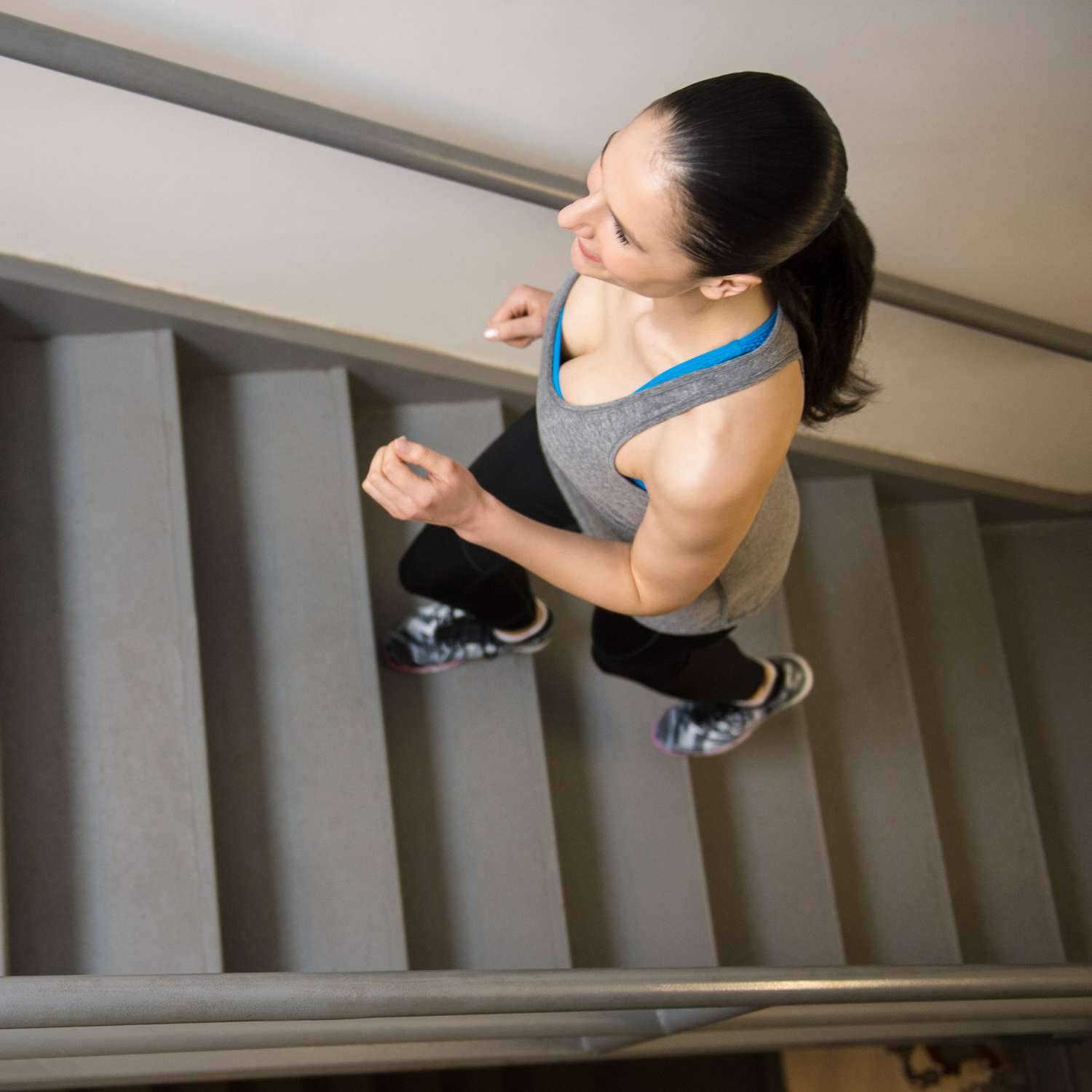
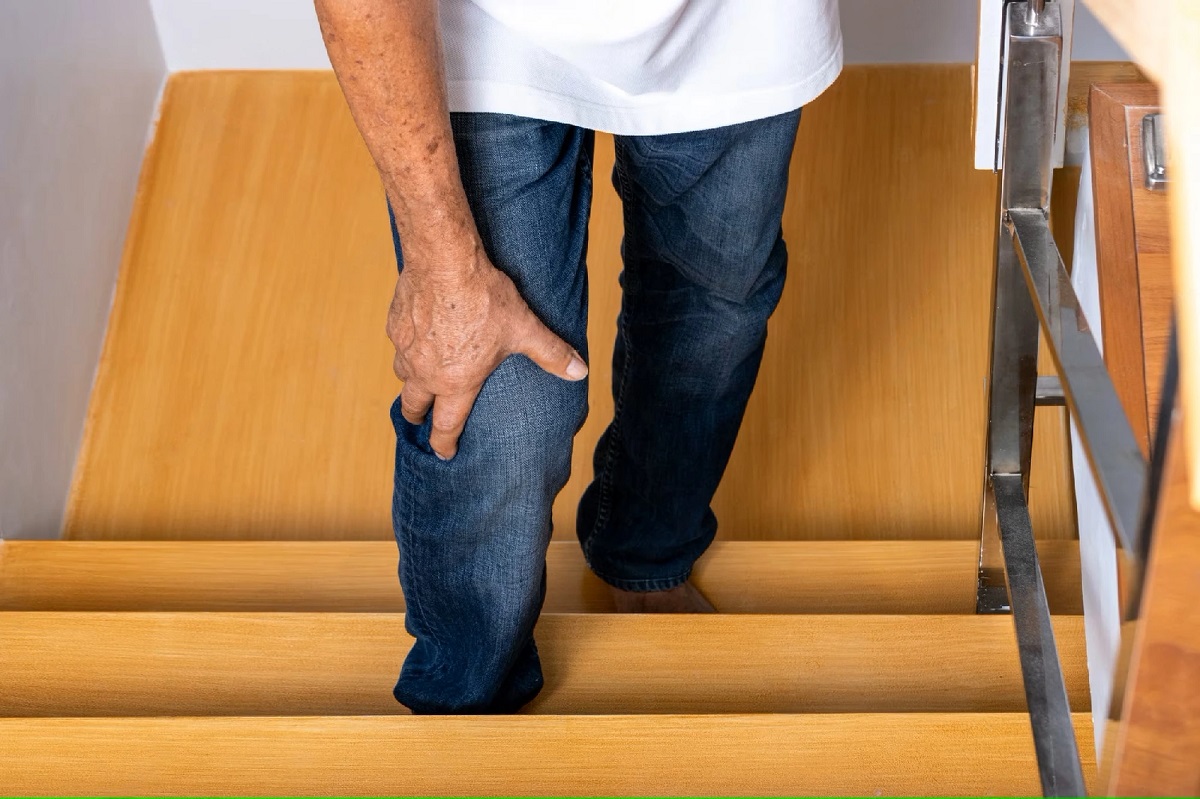
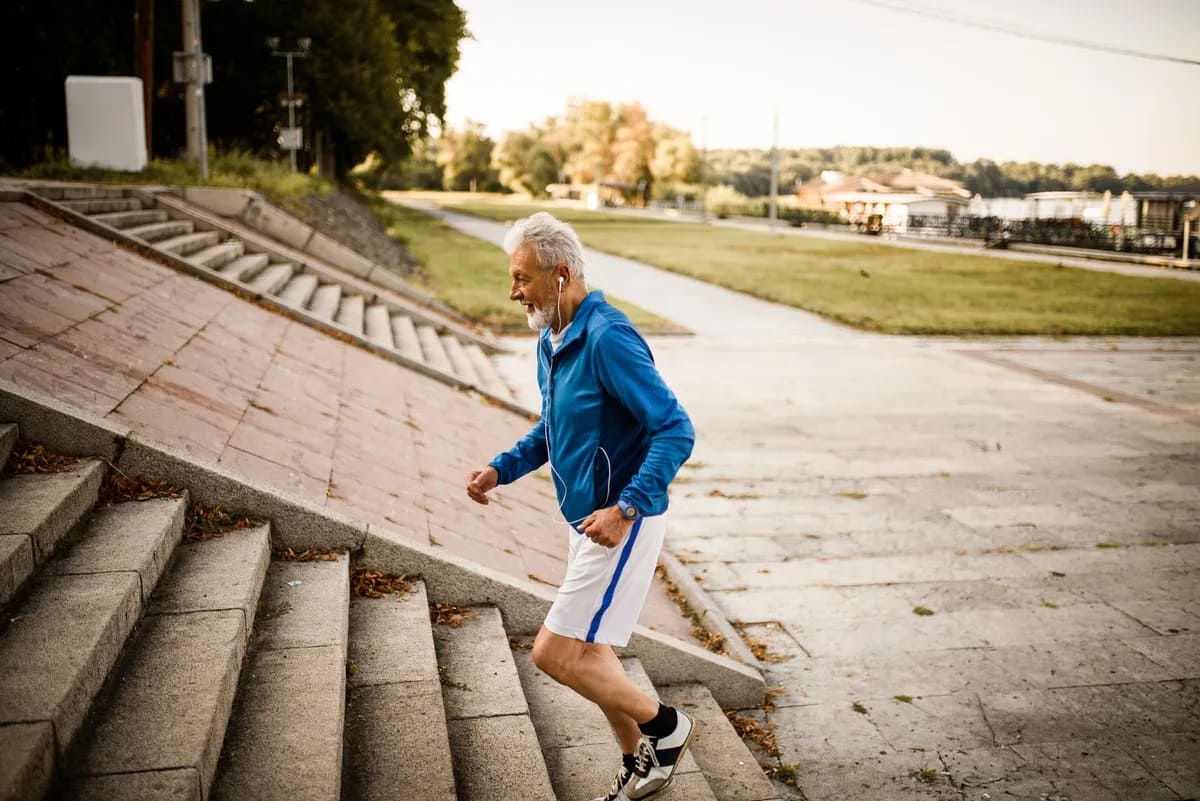

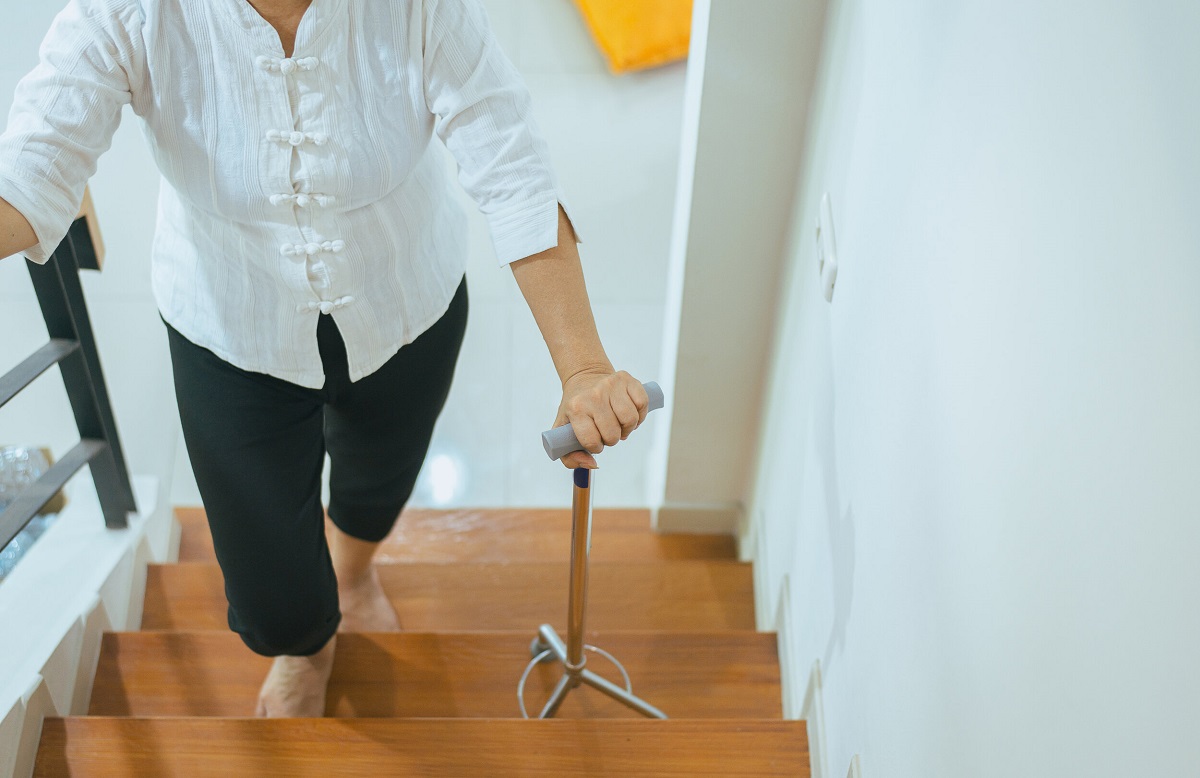

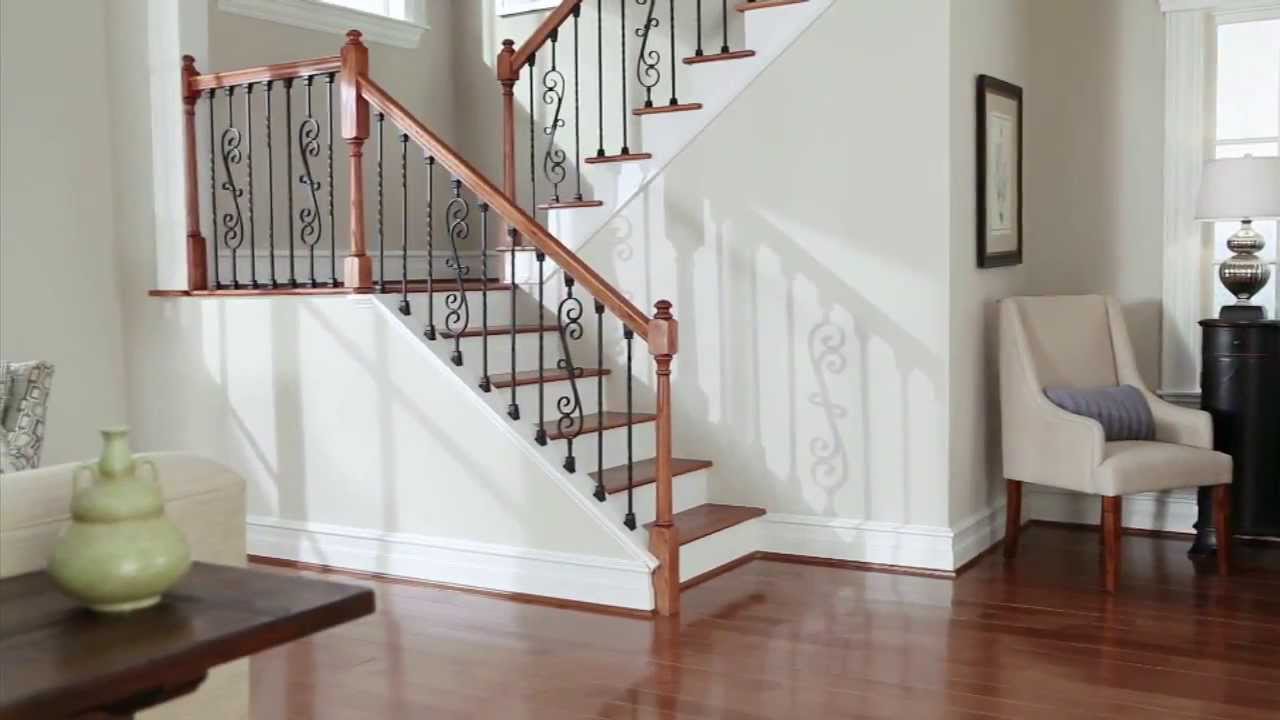

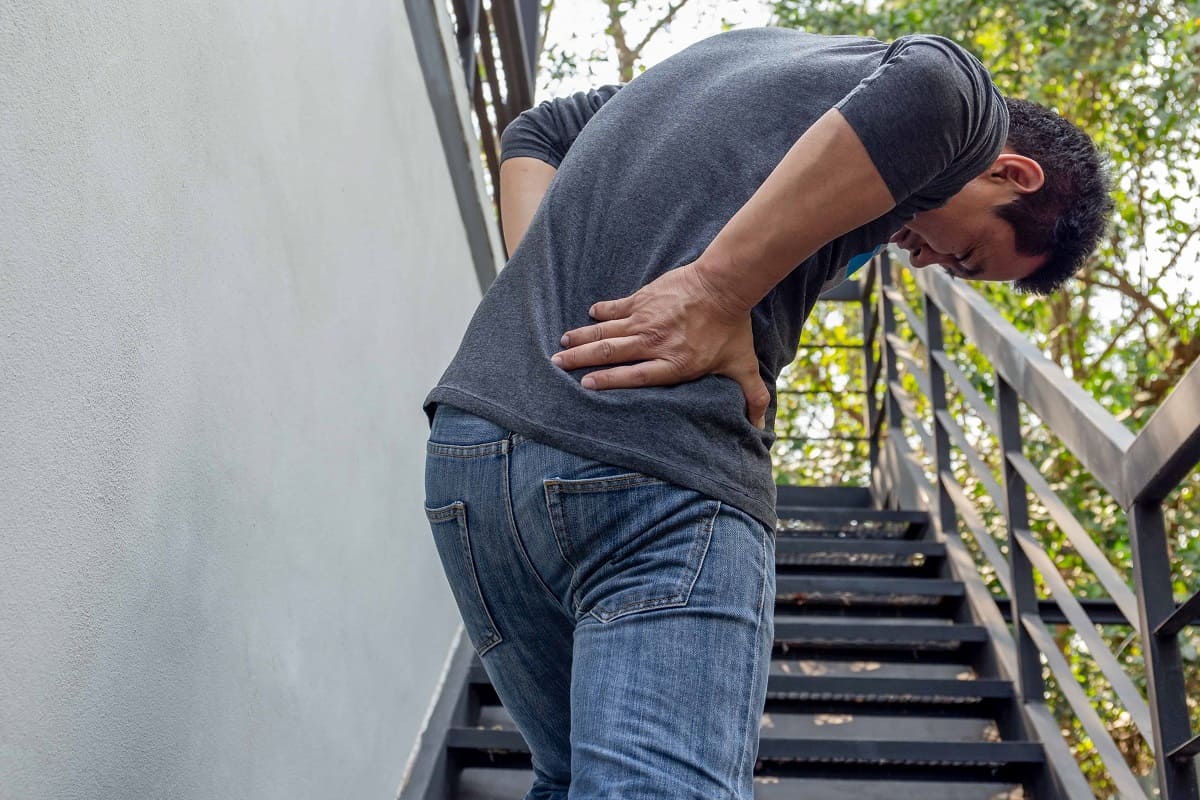



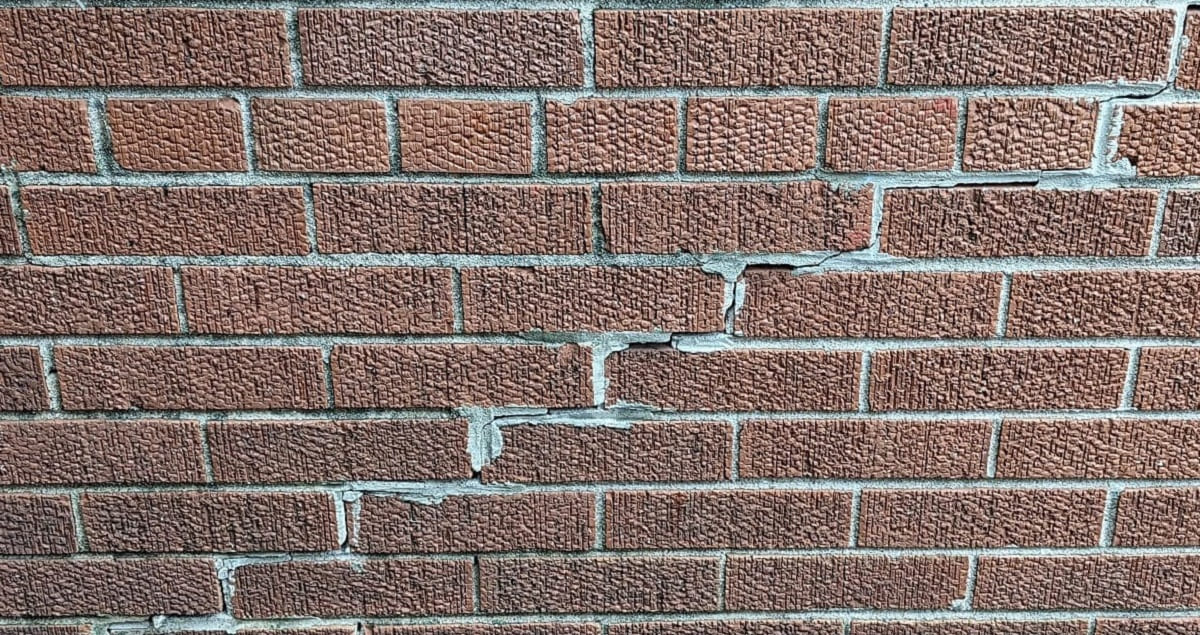

0 thoughts on “Knees Crack When Walking Up Stairs”